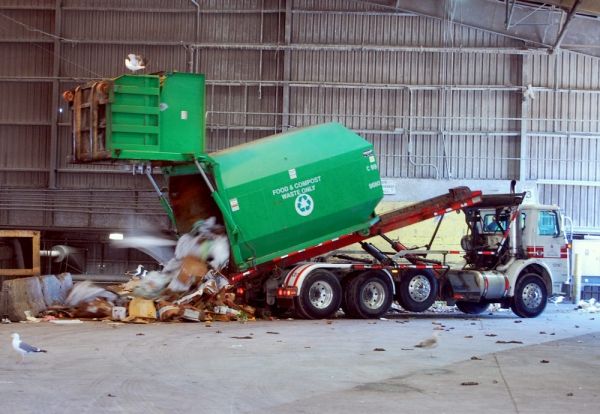Seeking to cut down on methane pollution from organic waste, California is launching a statewide food waste recycling program in January, the largest such initiative in the United States, the Los Angeles Times reported.
When microbes break down potato peels, coffee grounds, grass clippings, and other organic waste, they generate methane as a byproduct. Methane is a potent greenhouse gas, trapping around 80 times more heat than carbon dioxide, though staying in the atmosphere for only around a decade. Curbing methane pollution is key to limiting warming in the short term.
In California, food and yard waste account for around a fifth of statewide methane emissions. Under the new recycling program, most Californians will be required to deposit food waste in green bins rather than into trash cans. Cities will either compost organic waste, turning it into fertilizer, or they will harvest methane from rotting waste to burn it to generate power.
“This is the biggest change to trash since recycling started in the 1980s,” Rachel Wagoner, director of the California Department of Resources Recycling and Recovery, told the Associated Press.
Read more at: Yale Environment 360
A truck unloads organic waste at a waste transfer station in San Francisco, California. (Photo Credit: Todd Lappin via Flickr)


